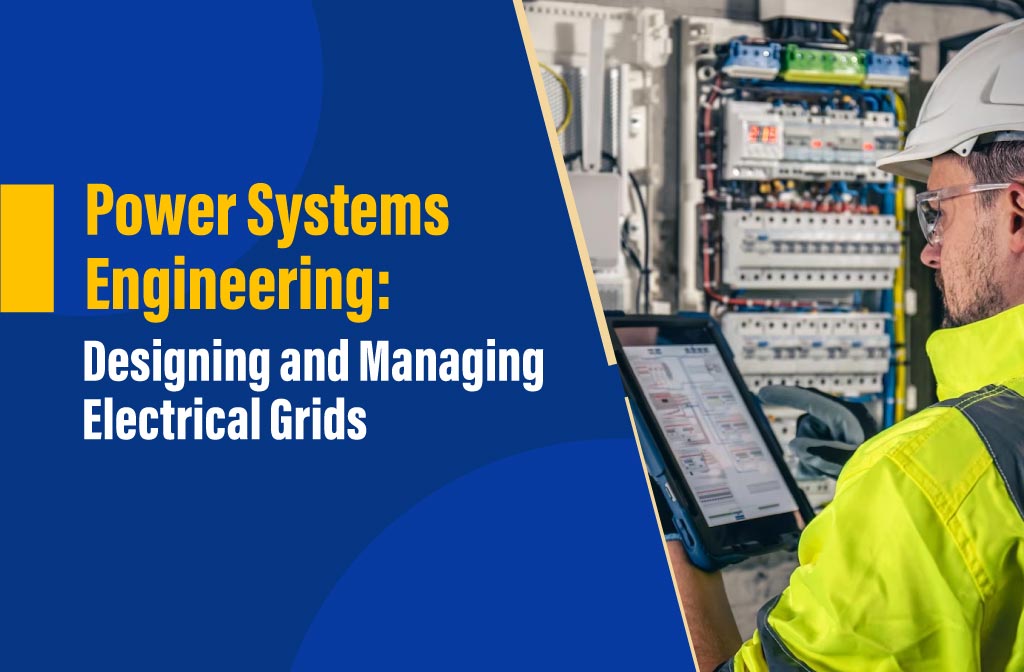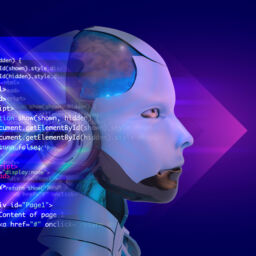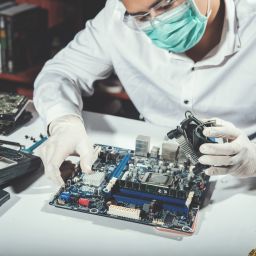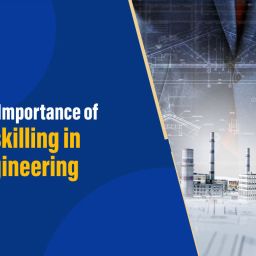
Did you wonder how generators, transformers, transmission lines, and distribution networks are designed? For this power system engineer holds the major role. Power system design is the process of arranging, estimating and integrating the components and hardware that make up a power system. The engineer needs to ensure various factors including reliability, efficiency, safety and cost-effectiveness of the power supply for designing. You may learn these concepts in your four-year degree engineering course at the best electrical engineering colleges in coimbatore. However, in this blog, you can read about the different power systems and their contribution to the real world.
Let’s begin with what you know about electric power systems.
There are chances that some may get confused with the terms – power electronics and electric power systems. Power electronics focus on the concept that describes the study of converting electrical power from one form to another.
A network that combines the process and disperses electrical power is known as an electrical power system. This large network is known as the grid that supplies networks with electricity. For generators, these networks are the sources where they generate power, distribute to the transmission framework, and deliver to individual homes or businesses through a type of distribution system. The balance of power systems categorised into three classifications are dynamic stability, transient stability, and steady-state stability.
Even though there are various power systems developments like renewable energy power systems, the possible future challenges are energy crisis, environmental emissions, climate changes, infrastructure and cyber challenges.
Different power systems that engineers should be aware of:
1. Renewable energy power systems:
This system uses renewable energy sources like solar, wind, hydro, biomass or geothermal to create electricity. These power systems have the ability to reduce greenhouse gas emissions, differentiate energy supply and improve energy security.
Engineers need to look out for the variability and uncertainty of the power systems, balancing supply and demand, and managing power quality and grid stability. Optimisation of power dispatch, transmission, and distribution is required for coordinating and integrating energy from renewable sources with conventional electrical sources.
2.Smart grid power system:
This power system uses advanced data and communication technology to monitor, control and upgrade the generation of power, transmission, distribution and utilization. However, you can find various challenges in the designs because of their complex nature and accessibility. The solution of this smart grid power system is to increase sustainability, efficiency, security and stability.
3. Microgrid power systems:
It provides stable, affordable, and electricity to remote or unconnected areas, offices or networks. This small-scale power system operates independently or in arrangement with the basic matrix. This microgrid power system has challenges in organizing and managing multiple power sources and loads inside the microgrids. Power system engineers should implement the shared or various levelled control plans.
4. Distributed generation power systems:
These power systems produce power at or near the location of consumption rather than at included facilities. It improves efficiency, and dependability, reduces transmission and delivery costs, and supports the integration of sustainable power. The challenges in this distributed generation power system are the current matrix foundation, security and safety of distributed generation sources, network supplies and arrangements for distributed generation structure and operations.
Future challenges in the power system:
- Local energy transactions
- Development of an end-user-centric approach
- New developments in power electronics
- Energy storage systems and their integration into distribution grids
- Enhancing the resilience in distribution systems to security failures
Career prospects in power system engineering:
Students need to concentrate on acquiring a job in power systems after getting a degree from the top 5 engineering colleges in coimbatore. There are courses specifically designed to study power systems. Power system engineering is also a rewarding profession and the things you need to understand before beginning your career are,
In a career in power systems as an engineer, you’re most likely to work in an academic institution lab or at a plant. The responsibilities of working in power systems are designing, creating, testing and operating the systems to make sure about the operational efficiency, and cost-effectiveness. Depending on the role, you may work on integrating renewable energy strategies and technologies. The common roles and responsibilities are
- Analysing systems or system components.
- electrical system upgrades.
- preparing estimated costs and bid proposals for the construction and repair of power systems.
- monitoring the construction of power systems.
- investing resources to build a power system.
- Ability to balance many obligations and priorities in a fast-paced atmosphere.
As a power system engineer, the possible roles are,
- Electrical power frameworks engineer
- Electrical designer framework and power dissemination
- Power supply engineer
- Line configuration engineer
- Power transmission and dispersion engineer
- AC-DC power frameworks engineer
The details mentioned above about the electrical power systems and how engineers can benefit from the role of power system engineer. As an engineer, you should know the career options available in power systems.















